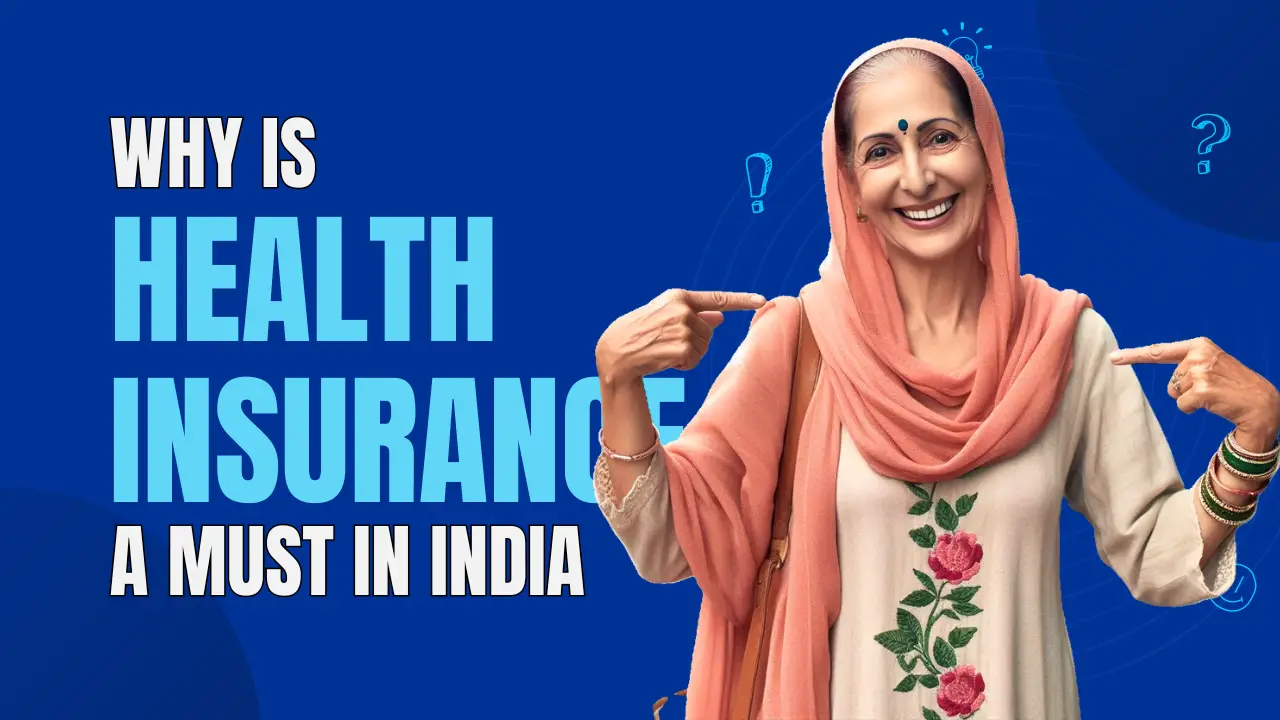
India has one of the highest out-of-pocket medical expenditures in the world. According to the data, 54.8% * of healthcare expenses in India are paid directly by individuals. This is significantly higher than countries like China (35.2%) *, United Kingdom (17.1%) *, Japan (12.9%) *, Germany (12.8%) *, and the United States (11.3%) *. Even countries with high living costs like France (9.3%) * manage to keep their citizens’ out-of-pocket expenses lower.
So, what does this mean for you and me?
It means that in India, over half of our medical bills — whether it's for a hospital stay, surgeries, or even basic treatments — come straight out of our own pockets. And while 54.8% is already concerning, the reality is even more daunting.
The available data says that 2/3rd of medical bills * in India are paid out of pocket. Essentially, two-thirds of the population is vulnerable to financial strain if an illness strikes.
Why Is This Happening?
India's healthcare system, while improving, still relies heavily on individual spending. One big reason behind this is the lack of widespread health insurance coverage.
This also touches on another key factor — medical inflation. With a medical inflation rate of 14% * as of 2021, healthcare costs are rising faster than most people’s incomes, making it harder for families to manage medical emergencies without falling into debt.
How Do We Compare to Other Countries?
Let’s take a look at how we compare to other nations:
-
China: At 35.2% *, their out-of-pocket expenses are much lower than India’s. Even though China is a neighboring country with a similarly large population, their government has taken steps to reduce the burden on individuals by increasing health insurance coverage.
-
United Kingdom: Just 17.1% * of healthcare costs are paid by individuals. The UK benefits from a National Health Service (NHS) that covers a majority of its citizens’ medical needs.
-
Japan and Germany: These countries have world-class healthcare systems where only 12-13% * of expenses are paid out of pocket. They have successfully managed to create a balance between government-provided healthcare and individual insurance policies.
-
United States: Despite its reputation for expensive healthcare, the U.S. keeps out-of-pocket expenses at 11.3% * due to a robust health insurance system, which, though costly, covers the majority of citizens through various programs.
What Does This Mean for You?
In India, the data show that you're more exposed to unexpected medical costs than people in most other countries. Even minor medical emergencies could burn a hole in your savings or worse, push you into debt. Without health insurance, you’re relying on your own resources, and with medical costs rising faster than inflation, this isn’t a gamble anyone should take.
Health insurance can dramatically reduce this risk. It can cover your hospital bills, surgical expenses, medication costs, and even pre- and post-hospitalization treatments. Instead of worrying about how to pay for treatment, you can focus on recovery — without draining your finances.
The Bottom Line
India’s staggering out-of-pocket medical expenses, as coming out from published data, underline one crucial point: we need health insurance.
While people in countries like Germany, Japan, and the UK have healthcare systems that reduce their financial burden, we in India don’t have that luxury yet.
Until we get there, health insurance is the most practical and reliable way to protect ourselves and our families from unexpected medical costs.
Don’t wait for a crisis to strike. Get insured, stay protected, and take control of your financial health before a medical emergency takes control of it for you.
Source: * WHO, Go Digit Research (2022)



